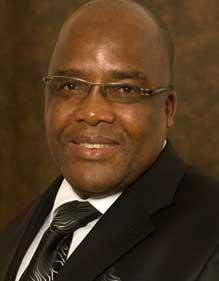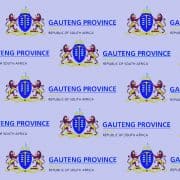|
Getting your Trinity Audio player ready...
|
 From mismanagement of funds to fraud and misconduct by hospital health care workers, the national Department of Health has had its fair share of problems over the past few years. And it does not look like its woes are over yet, either, looking at the provincial departments under its watch.
From mismanagement of funds to fraud and misconduct by hospital health care workers, the national Department of Health has had its fair share of problems over the past few years. And it does not look like its woes are over yet, either, looking at the provincial departments under its watch.
In one move, Corruption Watch and the Treatment Action Campaign today announced plans to take the Special Investigations Unit (SIU) to court to get access to its investigation into alleged corruption in the Gauteng department of health between 2006 and 2010.
Despite having at its helm an action-driven, hardworking leader, the department is also burdened by other woes of an unsavoury kind. Dr Aaron Motsoaledi took office as health minister in 2009. He has been credited with bringing about significant changes in the rollout of health programmes and campaigns, but the controlling systems in his department often leave it vulnerable to fraud and corruption.
One of its biggest challenges is the number and nature of tenders it gives out. This, however, is expected to change. In October 2012, Motsoaledi is reported to have announced a reduction in future of the use of tenders. “The replacement of the health care system with a tender care system has destroyed our public health system in this country, and it needs to be reversed,” the minister was as saying quoted by the Sowetan newspaper.
The department employs an alarming number of officials who rake in millions every year from their companies doing business with it. An extensive investigation by the SIU into the Eastern Cape provincial department found a massive number of public health officials – over 9 000 – whose companies made more than R40-million from doing work with their employer.
The lack of proper fund-tracking systems and performance monitoring has also led to cases of mismanagement and fraud. More often than not, the result of these large-scale discrepancies is that the department wastes millions every year on incompetent, expensive service providers who misuse the vulnerability of unprotected systems to their advantage.
Uncontrolled systems also led to a massive backlog of service providers who have not been paid money they are owed at the agreed times.
Accountability is key
In his 2010/11 annual audit of the department’s financial systems, the auditor-general, Terrence Nombembe, handed it a qualified opinion, citing the lack of policies and procedures to help track the department’s records, as one reason for his finding. Also in question was the accuracy of important information for purposes of smooth performance reporting.
Five investigations were under way at the time of the audit, involving individuals from various units in the department. One of these was gross mismanagement of funds in the case of a senior official who spent public funds to go on an unauthorised official trip overseas. Another involved fraudulent transactions amounting to R845 000 that were linked to the department’s travel agency. To get to the bottom of fraudulent payments made through the department’s basic accounting system, its executive team asked the National Treasury to undertake a forensic audit.
A key responsibility of the department – that of managing donor funds received from international health organisations – was put under the spotlight in the 2011/12 audit by Nombembe. His team’s job in this instance was to make sure that all funds from donors, and not the Treasury, were accounted for and channelled to the correct areas.
In the same year, several tenders linked to HIV testing kits were under investigation. The department had found that the kits did not comply with the standards set by the World Health Organization.
The case of the provinces
Through its reporting system – a platform via which members of the public can lodge complaints of corruption that they have experienced or witnessed – Corruption Watch has received plenty of allegations relating to the public health sector. The reports are characterised by two main issues: people either have told of public officials abusing their positions at health facilities like hospitals and clinics, or they have alerted the team to the misuse or siphoning of taxpayers’ money for personal gain by officials with access to public funds.
Between January and December 2012, more than 60 reports were received, accounting for 5% of the overall reports received by Corruption Watch in the year. The majority came from metropolitan areas, particularly from cities in Gauteng. Others came from KwaZulu-Natal, Free State and Eastern Cape.
The track record of the Gauteng health department over the past few years is one of deep concern. With problems ranging from misconduct and negligence at its facilities, to tender irregularities and delays in paying service providers, it has come under a great deal of pressure to turn its strategies around and improve on services all round.
The basis of the court action against the SIU is its refusal to give Corruption Watch and the Treatment Action Campaign access to information from its investigation. The two organisations are contesting this under the Public Access to Information Act. The information is expected to reveal graft that spans years of troubled procurement systems, irregularities in tendering, and misconduct.
In Eastern Cape, the SIU found that more than 10 000 of the provincial department’s employees were on the social grants system meant for the poor and unemployed. More than half of these received child support grants, and together these transgressions cost the state almost R60-million.
The two provinces are not the only ones troubled by corruption, but they are the worst hit.
Corruption Watch has found that the graft reflected in the media is often not the whole picture. The number of reports sent to the organisation by ordinary members of the public is growing steadily as the message of the campaign aimed at citizens extends its reach. Over the next few weeks we aim to give you, the reader, a chance to read about these reports on our public health sector, which is in dire need of a change for the better.









